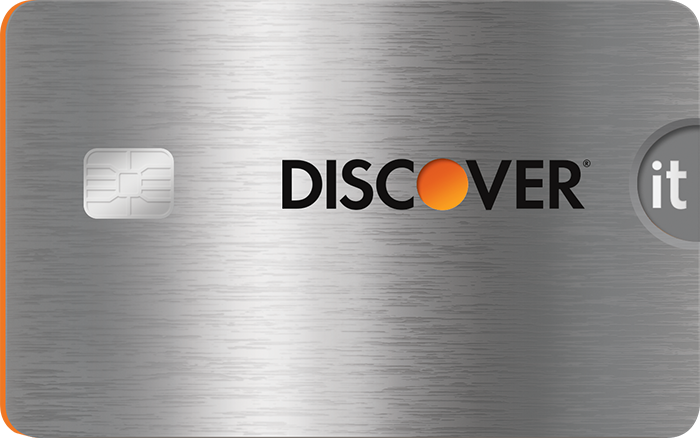- myFICO® Forums
- FICO Scoring and Other Credit Topics
- Personal Finance
- Tips for investing please.
- Subscribe to RSS Feed
- Mark Topic as New
- Mark Topic as Read
- Float this Topic for Current User
- Bookmark
- Subscribe
- Mute
- Printer Friendly Page
Tips for investing please.
Is your credit card giving you the perks you want?
Browse credit cards from a variety of issuers to see if there's a better card for you.
- Mark as New
- Bookmark
- Subscribe
- Mute
- Subscribe to RSS Feed
- Permalink
- Report Inappropriate Content
Tips for investing please.
I have decided to open a roth IRA and non-tax advantaged account on vanguard. I intend to simply put it all into ETFS for the S&P 500 and vanguard does not charge commission for those ETFs.
Right now I have an internship that will pay me $19/hr and I'm working in both the winter and summer so this will be my source of income to invest. I also have 15,000 currently in a money market account at sallie mae which I plan to put into vanguard.
My plan is to invest 5,500 into my Roth ira this year and then invest 5,500 after new year to get 11,000 into it so I can qualify for the minimum for the Index fund at admirals rate. After I qualify for the admirals rate, I intend to keep depositing 5,500 each year after. Any extra spare income I get goes to non-tax advantage account where I will get S&P 500 ETFS rather than Index funds because ETFS have better tax rates.
I'm also 19 and am a computer science major at UMD.
I would like advice and tips on my investment strategy.









 Starting Score: Ex08-732,Eq08-713,Tu08-717
Starting Score: Ex08-732,Eq08-713,Tu08-717Current Score:Ex08-795,Eq08-807,Tu08-787,EX98-761,Eq04-742
Goal Score: Ex98-760,Eq04-760
Take the myFICO Fitness Challenge
History of my credit
- Mark as New
- Bookmark
- Subscribe
- Mute
- Subscribe to RSS Feed
- Permalink
- Report Inappropriate Content
Re: Tips for investing please.
@Subexistence wrote:I have decided to open a roth IRA and non-tax advantaged account on vanguard. I intend to simply put it all into ETFS for the S&P 500 and vanguard does not charge commission for those ETFs.
Right now I have an internship that will pay me $19/hr and I'm working in both the winter and summer so this will be my source of income to invest. I also have 15,000 currently in a money market account at sallie mae which I plan to put into vanguard.
My plan is to invest 5,500 into my Roth ira this year and then invest 5,500 after new year to get 11,000 into it so I can qualify for the minimum for the Index fund at admirals rate. After I qualify for the admirals rate, I intend to keep depositing 5,500 each year after. Any extra spare income I get goes to non-tax advantage account where I will get S&P 500 ETFS rather than Index funds because ETFS have better tax rates.
I'm also 19 and am a computer science major at UMD.
I would like advice and tips on my investment strategy.
I think the long-term strategy of staying in a low-fee ETF is fine. When I diversify my 401ks and Roth accounts, it's across ETFs rather than individual stocks. In particular, I spread across S&P 500, Vanguard small and mid cap ETFs, and an international ETF (not evenly, of course - that balance is up to you to decide).
For excesses beyond the tax-advantaged vehicles, what I recommend is based on how much/where you're at in your investment needs:
1. Always keep an emergency savings fund. I'm guessing you plan on going into the technology sector, so I can say from experience you'll likely be safe on the lower end of the fund spectrum with a 3 month plan (perhaps start at 6 months until you're solidly in a position out of college then you can ramp down to 3).
2. Excess beyond your emergency savings should go into individual brokerages. At this point, you can buy more ETFs if you aren't sure of what you want to buy specifically, but eventually you'll settle on stocks you like. This is where the advice really becomes YMMV. Perhaps you want a passive income stream, so you will park money in higher dividend stocks. Perhaps you want more long-term growth, and if so you will park in growth stocks. I don't think anybody can tell you how to invest at this point without knowing your specific objectives beyond making a lot of money.
3. On top of number 2, a few things to remember. First, DO NOT succumb to FOMO. Bitcoin is a perfect example right now - if you bought 4 years ago, great! Cash out and retire. If you're seeing it explode and want in...hit the brakes. It's in a bubble and those who buy on FOMO are most likely to get burned when it bursts. Second, diversify your individual holdings. Make sure you have some money parked in multiple areas (tech, pharmaceutical, industrials, telecom, utilities, finance, etc).
- Mark as New
- Bookmark
- Subscribe
- Mute
- Subscribe to RSS Feed
- Permalink
- Report Inappropriate Content
Re: Tips for investing please.
@Subexistence wrote:I have decided to open a roth IRA and non-tax advantaged account on vanguard. I intend to simply put it all into ETFS for the S&P 500 and vanguard does not charge commission for those ETFs.
Right now I have an internship that will pay me $19/hr and I'm working in both the winter and summer so this will be my source of income to invest. I also have 15,000 currently in a money market account at sallie mae which I plan to put into vanguard.
My plan is to invest 5,500 into my Roth ira this year and then invest 5,500 after new year to get 11,000 into it so I can qualify for the minimum for the Index fund at admirals rate. After I qualify for the admirals rate, I intend to keep depositing 5,500 each year after. Any extra spare income I get goes to non-tax advantage account where I will get S&P 500 ETFS rather than Index funds because ETFS have better tax rates.
I'm also 19 and am a computer science major at UMD.
I would like advice and tips on my investment strategy.
I spent a lot of time divvying up into different commision-free ETF's and mutual funds. My biggest single investment in any of these was $500 in the S&P 500 index mutual fund. Most of my transactions have been a few shares of this ETF or that ETF just to learn. Some have lost a few bucks (or cents), most have made a few bucks (or cents), but I'm not likely to incur any single significant loss. I prefer mutual funds over ETF's for the most part because they don't get manipulated as much (We're both CS majors. Think of it as extending a class in OOP with a field that may be private or public; the ETF is more vulnerable like the public field.), but it also makes records easier when you can track the growth of $500 even instead of N shares originally totalling approximitely $500.
@If the $15k is your total savings anywhere, I wouldn't go loading up a non-IRA brokerage account. Like @iced said, keep it safer than that. Capital gains on taxes are a pain as well.
- Mark as New
- Bookmark
- Subscribe
- Mute
- Subscribe to RSS Feed
- Permalink
- Report Inappropriate Content
Re: Tips for investing please.
Join a local "FIRE" club (Financial Independence, Retire Early).
I've been "lucky" because I came across the Harry Browne Permanent Portfolio method in my late teens and followed it for 25+ years. Average annual return over that time frame is over 16% and I don't include my cryptocurrency gains in that.
But I modified his portfolio to include both real estate (investment property) and more recently crypto so I have a very balanced portfolio.
IRA/401K is great, but it's also not the best way to stable wealth long term. I keep a portfolio of cash (in CDs and savings account), stocks (in both IRA and regular), real estate, crypto and bullions/commodities. I rebalance my portfolio regularly (some assets annually, some quarterly) so I aim for a certain percentage split.
Even in down markets I've grown (sometimes as poorly as 0.2% for the year but everyone else was getting slaughtered in 401K/IRA) and in up markets I've slammed crazy growth. Since I rebalance my portfolios I am never over-exposured to any one particular market.
- Mark as New
- Bookmark
- Subscribe
- Mute
- Subscribe to RSS Feed
- Permalink
- Report Inappropriate Content
Re: Tips for investing please.
@Anonymous wrote:
@Subexistence wrote:I have decided to open a roth IRA and non-tax advantaged account on vanguard. I intend to simply put it all into ETFS for the S&P 500 and vanguard does not charge commission for those ETFs.
Right now I have an internship that will pay me $19/hr and I'm working in both the winter and summer so this will be my source of income to invest. I also have 15,000 currently in a money market account at sallie mae which I plan to put into vanguard.
My plan is to invest 5,500 into my Roth ira this year and then invest 5,500 after new year to get 11,000 into it so I can qualify for the minimum for the Index fund at admirals rate. After I qualify for the admirals rate, I intend to keep depositing 5,500 each year after. Any extra spare income I get goes to non-tax advantage account where I will get S&P 500 ETFS rather than Index funds because ETFS have better tax rates.
I'm also 19 and am a computer science major at UMD.
I would like advice and tips on my investment strategy.
I spent a lot of time divvying up into different commision-free ETF's and mutual funds. My biggest single investment in any of these was $500 in the S&P 500 index mutual fund. Most of my transactions have been a few shares of this ETF or that ETF just to learn. Some have lost a few bucks (or cents), most have made a few bucks (or cents), but I'm not likely to incur any single significant loss. I prefer mutual funds over ETF's for the most part because they don't get manipulated as much (We're both CS majors. Think of it as extending a class in OOP with a field that may be private or public; the ETF is more vulnerable like the public field.), but it also makes records easier when you can track the growth of $500 even instead of N shares originally totalling approximitely $500.
@If the $15k is your total savings anywhere, I wouldn't go loading up a non-IRA brokerage account. Like @iced said, keep it safer than that. Capital gains on taxes are a pain as well.
A bit OT, but I don't really see the OOP reference being quite correct. If anything, I would see investing in a MF vs ETF more like using a class vs a struct. With the MF, you're handing your money to a fund manager (the class) who then decides how the money is invested while still adhering to the fund's goal. You continue to put money in and take money out via the broker, which using your example would serve as the public functions. Basically, MFs have the added overhead of being managed. ETFs, on the other hand, are just index stocks. They're a package deal and you directly buy and sell them as if they were a single stock. Unlike a struct, however, you cannot manipulate the individual variables within the ETF struct - they're all consts. Honestly, neither analogy really hits it just right, but that's what we get for comparing two unrelated things to make a metaphor I guess.
As for taxes, I'd take capital gains any day over income. Dividends and growth are both taxed at capital gains rates (which are significantly lower than income rates) provided I leave it in there long enough, and only when I withdraw (with standard savings I pay income tax on the interest whether I withdraw it or not). In fact, that's part of my long-term strategy - I'll have much less in 401k/403b plans when I retire than I will in individual brokerages, and then only withdraw enough out of the tax-advantaged to meet withdrawal requirements while still staying in one of the two lowest income brackets. If I pull $200,000 a year out of a 401k, I'm in the 33% bracket, but if I pull $38,000 out of a 401k and $162,000 out of a brokerage, I'm still in the 15% bracket. This all excludes Roth of course since it's tax exempt.
- Mark as New
- Bookmark
- Subscribe
- Mute
- Subscribe to RSS Feed
- Permalink
- Report Inappropriate Content
Re: Tips for investing please.
Tax-exempt investments tend to be losers in the long run for those who don't do the math and forecast well. I see a lot of folks thinking "oh, it's tax-exempt" but then their returns and control of their funds is incredibly weak.
The point that dividends and growth "income" is taxed at a lower rate (long term) than income is key. I actually prefer my NON tax-exempt stock investments because I can easily convert them to real estate or another investment if the market is beneficial to me that way. My "tax-exempt" investments are strictly for retirement planning emergencies but I am so limited in what I can do with those funds -- they're mostly stuck in stocks and if the market shifts, there's not many options for exiting the stock market and putting those funds elsewhere. Sure there are REITs and trusts you can co-invest in, but it's severely limiting.
Without a financial forecast, you can't know if a tax-exempt portfolio makes sense or not. I retired in my early 40s but I can't touch my retirement fund because of age requirements, which is ridiculous.
- Mark as New
- Bookmark
- Subscribe
- Mute
- Subscribe to RSS Feed
- Permalink
- Report Inappropriate Content
Re: Tips for investing please.
I think the best single thing that our OP could do is slowly read a good introductory book on investing, one written by a reliable expert without any kind of specific agenda, and ideally one aimed at millenials.
The best book I know like that is William Bernstein's IF YOU CAN, which is available for free here:
You could move on from that to a deeper book like Bernstein's THE INVESTOR'S MANIFESTO. I also encourage you to do some research on Bernstein (or anyone else you read) so that you can get a sense of how reliable the person is. Checking out what the folks at Bogleheads think of a writer is a good example. Bernstein gets great reviews from a wide range of sources: Bogleheads, Forbes, etc.
In the meantime, socking away all the money you can into a Roth is a fine idea, but be sure to get fully grounded in the fundamentals first.
- Mark as New
- Bookmark
- Subscribe
- Mute
- Subscribe to RSS Feed
- Permalink
- Report Inappropriate Content
Re: Tips for investing please.
1. Save 3-6 months income in an easy accessible, low risk, place. Too many people blow their investments because they have to sell at a loss to cover an unexpected emergency like job loss.
2. Maximize any employer contributions for retirement funds. This is 100% return on investment at the time of investment. Even if you can get 10% returns vs 7% elsewhere, it would take 25 years to outpace the matching.
3. Pay down all high interest debt, and do not accept new long-term high interest debt. Making 10% of your investments is great, but if you have a 22% credit card with a balance, you are actually losing 12%.
(The following is opinion not numerical fact)
4. Buffet says only buy a stock you are willing to hold untouched for 20 years. Also not to diversify unless you are moving major money, because the per trade fees will eat your profit alive. $5 on a $1,000 trade is much better than $5x10 on 10x$100 trades. If you can't find something you trust long term, then buy an index fund as it will be diverse and historically gives long term returns.
(the following is purely opinion)
5. Don't worry about not having maximized your returns/savings. Everyone makes a mistake here/there and you don't want to second guess yourself. I sold APPLE at $43 to pay for a car repair. A friend paid for a pizza with a whole bitcoin. These things happen.
Similarly, life isn't worth living if you don't enjoy it. Some say better to be a miser in your 20s so you can be retired in your 40s, but some people die of heart attacks at 39, so be willing to live a little without going over the top.
- Mark as New
- Bookmark
- Subscribe
- Mute
- Subscribe to RSS Feed
- Permalink
- Report Inappropriate Content
Re: Tips for investing please.
@Kree wrote:(the following is purely opinion)
5. Don't worry about not having maximized your returns/savings. Everyone makes a mistake here/there and you don't want to second guess yourself. I sold APPLE at $43 to pay for a car repair. A friend paid for a pizza with a whole bitcoin. These things happen.
I "tipped" over 4 entire BTC on reddit. I bought a $20,000 laser printer with bitcoin direct back when it was $250.
No regrets, though. Still have my main holdings there, but that's almost 100 BTC blown on useless actions.
- Mark as New
- Bookmark
- Subscribe
- Mute
- Subscribe to RSS Feed
- Permalink
- Report Inappropriate Content
Re: Tips for investing please.
@Anonymous wrote:
@Kree wrote:(the following is purely opinion)
5. Don't worry about not having maximized your returns/savings. Everyone makes a mistake here/there and you don't want to second guess yourself. I sold APPLE at $43 to pay for a car repair. A friend paid for a pizza with a whole bitcoin. These things happen.
I "tipped" over 4 entire BTC on reddit. I bought a $20,000 laser printer with bitcoin direct back when it was $250.
No regrets, though. Still have my main holdings there, but that's almost 100 BTC blown on useless actions.
To be fair, bitcoin would not be the investment powerhouse it is today if people had not used it for the intended purpose over the last decade. plenty of cryptocurrency has come and gone because there have been no widespread adoptions. Your "useless actions" might have been the nail in the shoe for the horse/rider/etc that allowed bitcoin to flourish.
I personally believe that bitcoin is going to go through an adjustment period soonish, and whether it comes out the other end trending upward or further downward will depend on what percentage of the coins are being circulated versus being held. Or if it develops a new market niche, such as an intermediate currency for use with currency exchange while travelling. Or becomes adopted by a smaller country with currency stability issues like Greenland.